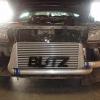Mercury Motorsport
Announcements
-
Similar Content
-
Latest Posts
-
By TurboTapin · Posted
No issues here with my PRP gears in an OEM pump housing. I did confirm all housing clearances were to spec prior though. Cheers. -
Thread is a bit old but figured id give my input anyway just incase. Have had lots of water problems in my R32 and was getting sick of wet tools in the boot and water filling up half my taillights. I ended up finding that whenever my car had been repainted they didn't reseal the taillights to the body of the car so water was just flowing straight into the boot, this is amplified by all the water around the bootlid being directed down to the taillights so would get pretty wet whenever I washed the car or it rained. You could probably use silicone to seal them to the body but I think from factory they use a roll of automotive grade butyl rubber. Hopefully this helps you if that ends up being how the water is getting in on your car!
-
By Dose Pipe Sutututu · Posted
Correct And whatever you do, don't use an oil pump gear, especially the one that starts with the same letter as Santa and the last letter ends with the same first letter as Lagoon. Get a proper oil pump, like a Nitto, Tomei, etc. and make sure you invest in a big fk off sump. Won't go into too much detail, but I am sure it caused my previous built motor to go bang. -
$350 seems pretty steep for a wetpan event, you can definitely find cheaper ones there depending on the club running it. I have done 4 there now with both Driving Sports & Australian Drift Club with entry being $160 & $180 respectively.
-
This must be what my stock height 32 looks like to stance guys
-









Recommended Posts
Create an account or sign in to comment
You need to be a member in order to leave a comment
Create an account
Sign up for a new account in our community. It's easy!
Register a new accountSign in
Already have an account? Sign in here.
Sign In Now